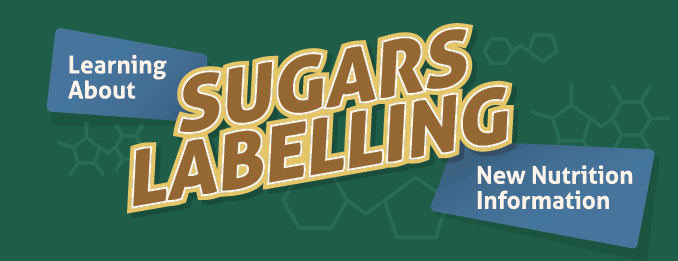Whats New
Are foods and beverages reduced in sugars also reduced in Calories?
Consumers and health professionals alike often expect that foods and beverages higher in free or added sugars are also higher in calories, and that reformulation to reduce sugars will result in a similar reduction of products' calorie contents. Two recent studies on this topic from researchers at the University of Toronto reveal discrepancies between such perceptions and marketplace reality.
Bernstein, J.T.; Franco-Arellano, B.; Schermel, A.; Labonté, M-È.; L'Abbé, M.R. Healthfulness and nutritional composition of Canadian prepackaged foods with and without sugar claims. Appl. Physiol. Nutr. Metab. dx.doi/org/10.1139/apnm-2017-0169
A cross-sectional analysis of the University of Toronto 2013 Food Label Database assessed differences in calorie content, nutrient content, overall healthfulness, and use of sweetener ingredients in Canadian prepackaged foods and beverages with sugar claims compared to similar products without sugar claims.
They found that products with sugar claims (such as "no added sugar" or "reduced in sugar") had lower median calories, free sugars, total sugars and sodium compared to those without sugar claims, however, reductions in free sugars were not always met with comparable reductions in calories. About 48% of products with sugar claims contained at least 10% of calories from free sugars.
The authors suggest improvements to sugar claim regulations to ensure claims are "meeting consumers' perceptions, and to make sure they're found on foods that are low in sugars and lower in calories..."
Bernstein, J.T.; Lou, W.; L'Abbe, M.R. Examining the Relationship between Free Sugars and Calorie Contents in Canadian Prepacked Foods and Beverages. Foods 2017, 6, 75.
This study examined the relationship between free sugars content and calorie levels in over six thousand prepackaged foods and beverages sold in Canada.
The results of this study were mixed, showing both significant and non-significant relationships. A significant positive relationship between free sugars content and calorie density was observed in only 3 of 5 beverage subcategories (e.g. soft drinks) and 14 of 32 food subcategories (e.g. frozen desserts, baked breakfast). Free sugars content did not correlate with calorie density in the remaining 2 beverage and 18 food subcategories (e.g. ready-to-eat cereals, dairy beverages).
Removing free sugars from foods often requires caloric or non-caloric replacement ingredients to maintain functionality. The authors suggest this requirement may at least partially explain why some relationships were significant and others were not. Findings also highlighted the need for "product innovation within the context of improving overall nutritional quality of the diet."
Want More Information about Changes to Sugars Information on Nutrition Labels?

What is the % Daily Value for Sugars? What ingredients are considered added sugars and where can they be easily found on food labels?
Health Canada released changes to food labels in December 2016. All packaged food and beverage products must display the new labels by December 2021, but you may see changes before then as companies begin to adopt them on their labels.
To help answer common questions and allow you to help your clients navigate the upcoming changes related to sugars on the Nutrition Facts table and List of Ingredients, the Canadian Sugar Institute Nutrition Information Service has developed a new infographic "Learning about Sugars Labelling: New Nutrition Information". It highlights common sugars-based ingredients found on the labels, as well as some tips to avoid misunderstanding of terminology.
This resource is available to download in both English and French and can be added to your digital communications or used as an offline educational resource.



